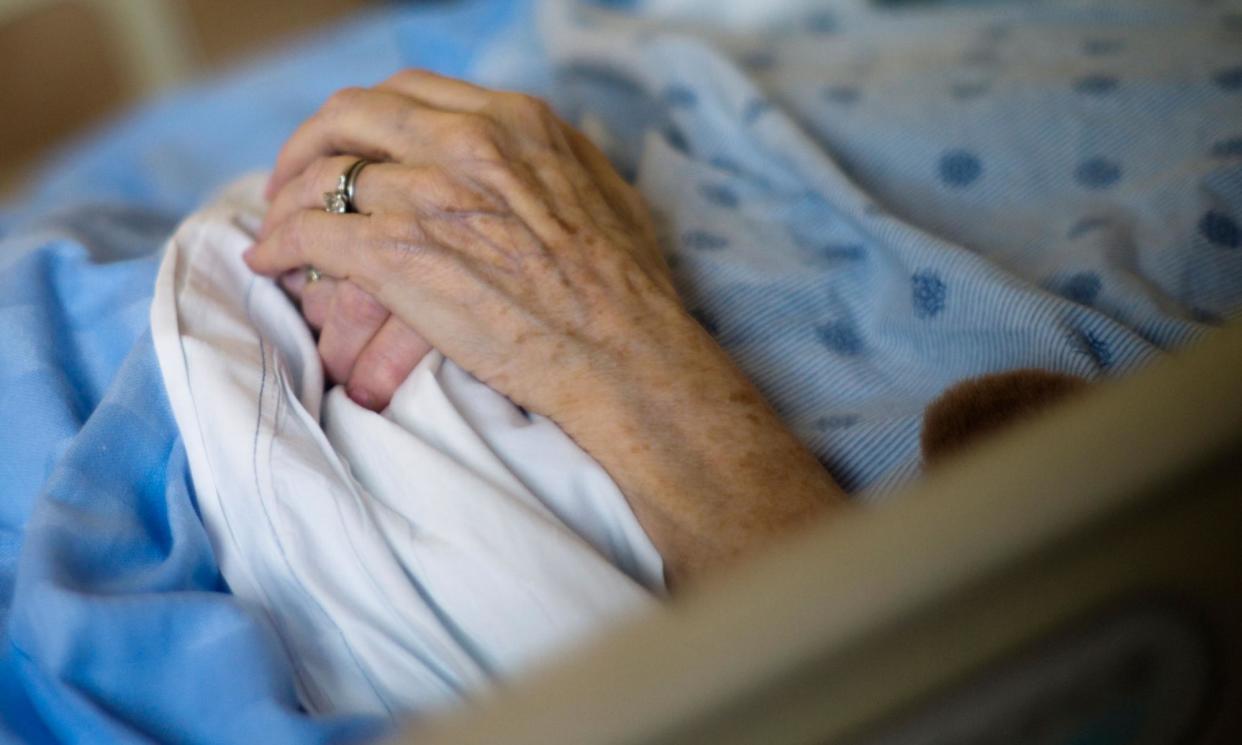More than 130 patients in NSW died through voluntary assisted dying in program’s first three months

More than 130 patients have died through New South Wales’s voluntary assisted dying program in the first three months since it was legalised.
NSW became the last state in Australia to legalise voluntary assisted dying when new legislation came into effect in November.
Between November 2023 and February 2024, 517 patients have made requests to access voluntary assisted dying and, of those, 131 completed the process.
An interim report from the NSW Voluntary Assisted Dying Board showed that in the three-month reporting period, 408 patients completed a first assessment.
Of those people, 321 completed the next step, a consulting assessment, and of those, 248 made a substance authorisation application.
Of those who died following the process, 30% self-administered the voluntary assisted dying substance.
The report also showed that of those who completed the first assessment, a majority were over the age of 60.
Related: What are the laws on voluntary assisted dying in each state?
It said 2.5% came from Indigenous communities, while 65% lived in regional NSW.
Prof Jenni Millbank, the NSW Voluntary Assisted Dying Board chair, wrote in the report that many patients apply to receive substance authority from the board, but never use it.
“We know from the experience in other states as well as our first few months of operations that some people who receive a substance authority from the board may ultimately choose not to take the substance,” she wrote.
“Knowing the substance is available to them gives these people the power of choice, and may provide a degree of relief and comfort in their final days and weeks.”
The report showed that of the 246 patients who made successful applications for substance authorisation, 115 did not use it, while 29 died from other causes during the reporting period.
Millbank said the board meets twice weekly in person to assess applications and they are sometimes forced to meet more often in urgent cases.
“The board undertakes a high volume of work associated with its decision-making functions,” she wrote.
“We are also often required to make decisions at short notice or in urgent circumstances outside of our regular meeting schedule. This is to ensure that eligible people who are at end of life or at risk of losing decision making capacity who have applied for voluntary assisted dying are supported to access it.”
The NSW government passed voluntary assisted dying legislation in May 2022 after a marathon debate and six months after the bill passed the lower house.
The bill was spearheaded by the independent MP Alex Greenwich and limits access to voluntary assisted dying to people with terminal illnesses who will die within six months or 12 months in the case of a person with a neurodegenerative condition experiencing unbearable suffering.
The person must be found to have capacity to make the decision to go ahead voluntarily without duress and the application would be assessed by two medical practitioners.
Patients can choose whether they want to take the medication themselves orally or for it to be injected by a doctor.


